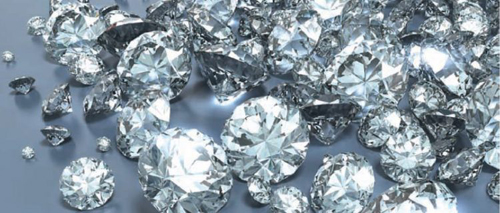
Man-made diamonds are becoming increasingly identical to those that are naturally sourced. Do they have what it takes to disrupt the $80 billion global diamond industry?

Synthetic diamonds are becoming well positioned to shine in the market.
Man-made diamonds are becoming increasingly identical to those that are naturally sourced. Do they have what it takes to disrupt the $80 billion global diamond industry?
Many are beginning to think so. One Las Vegas-based company, Centaurus Diamond Technologies (OTCPK:CTDT), has patented a technology that enables the high volume production of diamonds that are chemically, atomically and structurally identical to natural ones.
Apart from being a girl’s best friend, diamonds are chemically resistant and the hardest known naturally occurring material. Diamonds have great industrial capabilities for which they are widely used for cutting, polishing and grinding tools. And Centaurus’s new technology aims to bring about high-volume, cost-efficient diamond production to provide affordable, industrial-quality diamonds to companies worldwide.
The company’s shares are up 330% from this time last year. Analyst Robert Goldman from Goldman Research predicts that the company is poised to make waves in the market, rating it as a ‘speculative buy’.
Game-changing technology
It won’t be long before Centaurus enters the consumer jewellery market, and it is far from the first company to do so. Retailers are already selling synthetic diamonds that are practically indistinguishable from their natural counterparts at discounts of 30 to 40%.
And synthetic diamond retailers are attracting a great deal of attention from investors – and receiving celebrity attention from the likes of Leonardo DiCaprio.
As the synthetic diamond business grows will the man-made business be left behind?
Although it may be good news for the price-conscious, with synthetic diamonds being sold at retail for a fraction of the price of natural diamonds, will this change the way that the diamond industry prices naturally-sourced diamonds in the future.
De Beers, owned by Anglo American (LON:AAL), owns 34% of the gemstone’s market share and is adamantly against selling synthetic diamonds. “De Beers’ focus is on natural diamonds,” says Simon Lawson, head of De Beers’ UK technology division, adding that: “We would not do anything that would cannibalise that industry”.
DeBeers even has its own synthetic diamond lab that focuses on detecting the man-made diamonds that are polluting its trade. It says its method of detection, which involves a $55,000 piece of technology “underpins the integrity of natural diamonds and ensures that consumers cannot be duped into buying a synthetic diamond”.
A business opportunity or a worrying threat?
It all depends on consumer tastes. “Lab-grown diamonds are a growing threat to the diamond industry because they are of the highest quality,” says Citi Research in a report titled ‘Disruptive Technology in Mining’. It adds it’s not an immediate problem for the diamond mining industry, but could evolve into a threat in 10 or 15 years’ time.
“The hope for the miners is that consumers will continue to see such diamonds as synthetic and not proper diamonds.”
The industry could stand to benefit from man-made diamonds if retailers take the stance of offering synthetic stones as more affordable alternatives for entry level buyers who may well plan to upgrade to a naturally-sourced diamond in the future.
McKinsey & Co warns that if consumers lose faith in diamonds, either by losing faith in the natural diamond supply chain – for example, through an influx of synthetic diamonds – or if diamonds lose their emotional equity, a reputation-driven demand shock might occur.
“This could have effects similar to those in the fur industry in the 1990s, following extensive negative exposure in the media.”